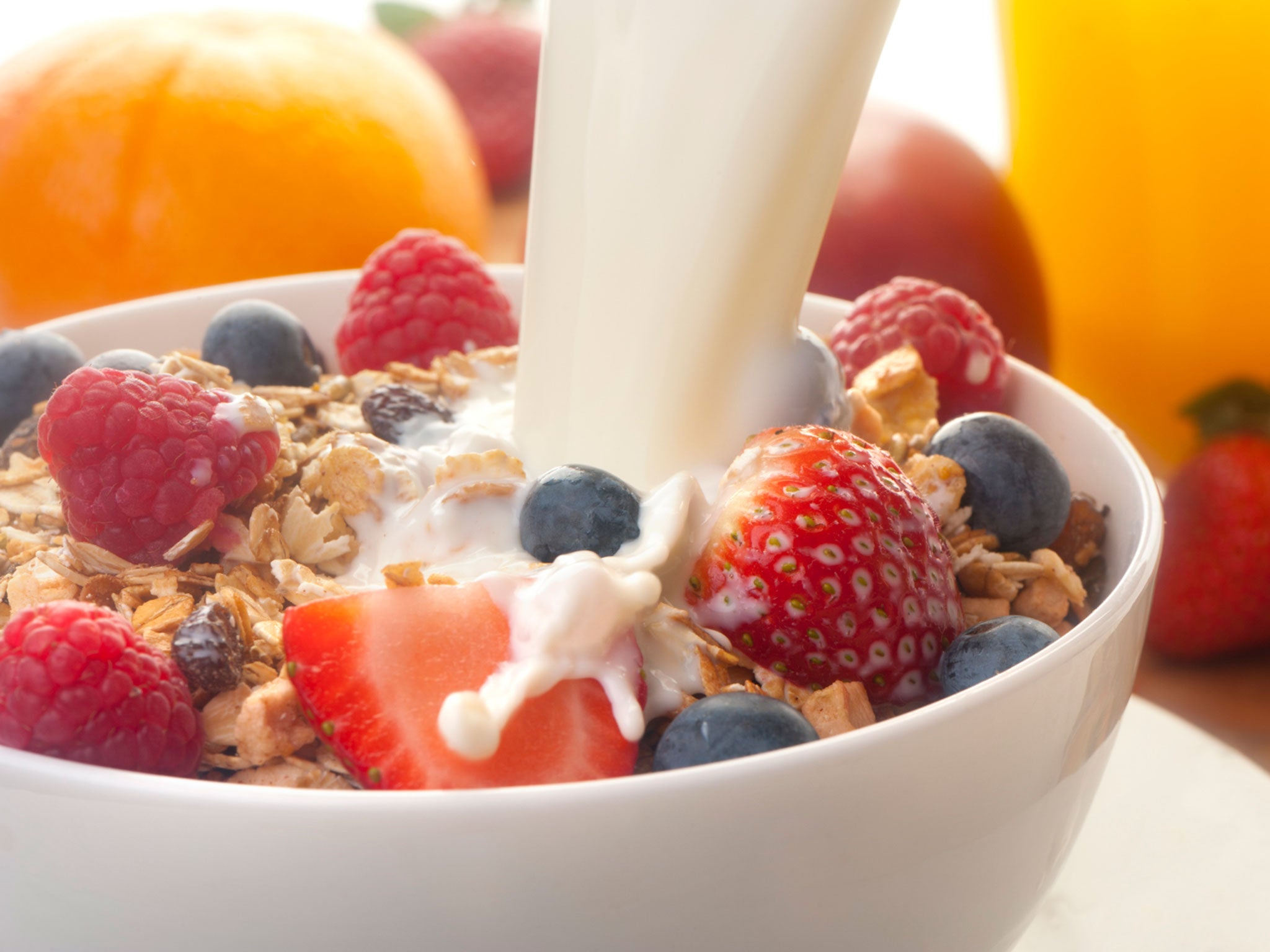Breakfast might not be the most important meal for your brain
For as much emphasis that has been placed on breakfast as the 'most important meal of the day' there hasn't been much clear evidence one way or the other

Your support helps us to tell the story
From reproductive rights to climate change to Big Tech, The Independent is on the ground when the story is developing. Whether it's investigating the financials of Elon Musk's pro-Trump PAC or producing our latest documentary, 'The A Word', which shines a light on the American women fighting for reproductive rights, we know how important it is to parse out the facts from the messaging.
At such a critical moment in US history, we need reporters on the ground. Your donation allows us to keep sending journalists to speak to both sides of the story.
The Independent is trusted by Americans across the entire political spectrum. And unlike many other quality news outlets, we choose not to lock Americans out of our reporting and analysis with paywalls. We believe quality journalism should be available to everyone, paid for by those who can afford it.
Your support makes all the difference.Breakfast is often described as the “brain food” that gives you that boost you need to be productive in the morning.
But, unfortunately, while your early morning bowl of cereal might provide a burst of energy, it might not be having the effect on your brain that you think it does.
A study published on Thursday in the American Journal of Clinical Nutrition found that eating breakfast didn't do much for the cognition in kids.
For as much emphasis that has been placed on breakfast as the “most important meal of the day,” there hasn't been a ton of clear evidence one way or the other as to what exactly the effects are on the brain. For example, a study of 30 kids 9-11 years old and 30 kids 6-8 years old in 2005 did suggest that there was some enhanced cognition in kids who ate breakfast, particularly if it was something hearty like oatmeal.
And a 2009 analysis of existing breakfast and cognition studies found “that breakfast consumption has generally positive effects on cognitive performance in comparison with breakfast omission.” But, the analysis noted, what particular cognitive domains were affected by food in the morning wasn't as concrete.
So, researchers at Baylor College of Medicine and the University of Houston wanted to get a clearer picture of what that looked like, with the overall goal of seeing if hunger could affect children's ability to learn. They studied nearly 130 8- to 10-year-old kids who stayed overnight three times. The kids were either assigned to fast overnight, or were given breakfast in the morning. They the children went through a series of cognitive tests that measured their attention, impulses and short-term memory skills, as well as how fast they could process information and retain material they were told.
By the end, the researchers didn't see any effects on the kids's' ability to perform in each of the cognitive tests, leading the researchers to conclude that “breakfast consumption had no short-term effect on neuropsychological functioning in healthy school-aged children.”
But, of course, breakfast does provide vital nutrients to keep you energized throughout the day, so either way it's still important to eat a morning meal that's high in protein and complex carbohydrates, but not as high in sugar.
Read more:
• This chart is easy to interpret: It says we're screwed
• How Uber became the world's most valuable startup
• These 4 things could trigger the next crisis in Europe
Read the original article on Business Insider UK. © 2016. Follow Business Insider UK on Twitter.
Join our commenting forum
Join thought-provoking conversations, follow other Independent readers and see their replies
Comments